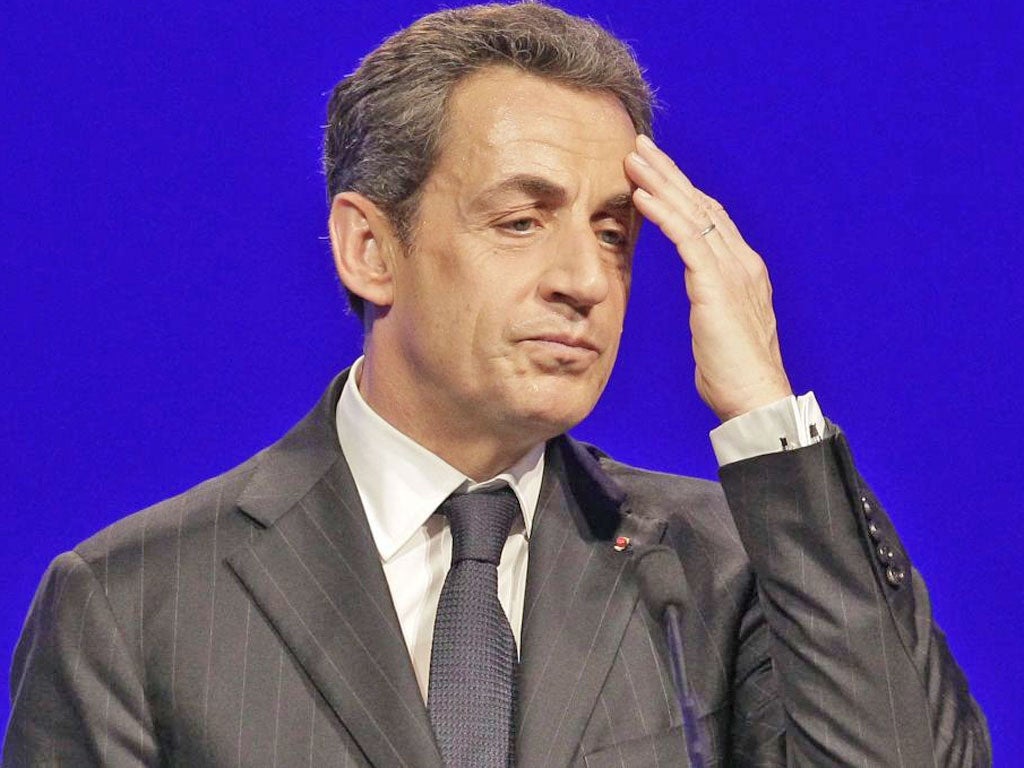Why the French believed they had no choice but to intervene in Mali’s war
Sarkozy, for good reasons and bad, is partly responsible for what is happening in Mali

Until this month, Mali was a large, faraway country of which we knew little. It was one of the 50 poorest countries in the world. It was the home of the popular world music duo, Amadou and Mariam. It was the site of one of the globe’s mythical destinations, Timbuktu.
But in the past 10 days, Mali has leap-frogged to the top of the news bulletins and the list of crises facing Western governments. Why?
According to Paris, and now London, northern Mali threatens to become a Taliban state on Europe’s doorstep. A loose alliance of Islamist movements – two of them local and one multinational – seeks to turn Mali into the core of a jihadist empire stretching 2,000 miles across the notional frontiers of 10 states in northern and western Africa from Nigeria to Libya.
France, the former colonial power, intervened militarily 10 days ago to prevent the Islamist movements from conquering the south of Mali. Despite some logistical help from Britain and others, and the promise of a pan-West-African army, France has so far acted almost alone.
The bloody attack on the BP-run gas field in eastern Algeria last week was supposedly retaliation against the French intervention. It was probably planned long before. All the same, the four-day siege of the gas complex and the deaths of dozens of hostages from half a dozen countries grimly made France’s point.
The battle for Mali is not just about Mali. It is not just a case of France meddling in its former African colonies – something that President François Hollande swore to end when he entered the Elysée Palace last year.
After initial support, the centre-right opposition in France has started in recent days to criticise President Hollande’s alleged “international isolation” and “lack of preparedness”. This drumbeat appears to have been encouraged in part by former President Nicolas Sarkozy.
And yet Mr Sarkozy, for good reasons and bad, is partly responsible for what is happening in Mali. The revolution against Muammar Gaddafi in 2011, aided by Mr Sarkozy and David Cameron, released vast quantities of modern weapons from the Libya state arsenal into the Sahara. Distracted by the presidential election last year, Mr Sarkozy was slow to respond when these weapons armed a Tuareg rebellion in northern Mali 12 months ago.
Mali was what was left of the old 19th- and 20th-century French empire in West Africa when the other chunks were given, or opted for, independent statehood 50 years ago. The country sprawls like a butterfly the size of two Spains across the ethnic and climactic fault-line between Saharan and sub-Saharan Africa.
The larger, northerly wing of the butterfly consists of desert and semi-desert, inhabited sparsely by Tuareg and Maures and Arabs. The smaller, southern wing is grassland and tropical forest, occupied by 90 per cent of the 14.5 million Malians from a dozen different black African peoples. For many years, despite its poverty and bizarre geography, Mali counted as a relative African success story. From 1991, there was a flourishing democracy. Ethnic tensions were mild.
Corruption and neglect in Bamako fuelled the Tuareg revolt in the north last year, which was, originally, more separatist than Islamist. The rebellion generated a coup in Bamako, which left the Malian state and army in near-collapse.
In April the Mouvement National pour la Libération de l’Azawad (MNLA) declared a new Tuareg state but was immediately overwhelmed by an Islamist breakaway wing and two other Islamist movements. The largest of these, al-Qa’ida in the Islamic Maghreb (Aqim) consists of jihadists from throughout the world led by Algerian exiles (a mirror image of the French Foreign Legion).
Aqim led the attack on the south of Mali this month which brought France into the war (as it knew it must). It was a splinter-group of Aqim which attacked the BP gas complex (800 miles from the Malian border). In both cases, the motive seems to have been to draw Western governments into a “new Afghanistan” in the Sahara which would increase the kudos, and recruitment power, of Aqim among jihad-minded Muslims all over the globe.
The West is therefore damned if it does intervene in Mali and damned if it does not. Hence the geo-political importance of efforts to put together a West African army, 3,000-strong or more, to take the fight to the rebels.
European Union countries agreed last week to send soldiers to train the West Africans. The record of such pan-African forces is poor. The Malian army’s record is poorer. There are fears among the defeated Tuareg secular nationalists of ethnic reprisals if the Malian army moves north.
The French Defence Minister, Jean-Yves Le Drian, insisted, nonetheless, at the weekend that France’s war aim is to recapture every square millimetre of the deserts of northern Mali. Taken alone, these amount to about 300,000 square miles – substantially larger than Afghanistan.

Join our commenting forum
Join thought-provoking conversations, follow other Independent readers and see their replies